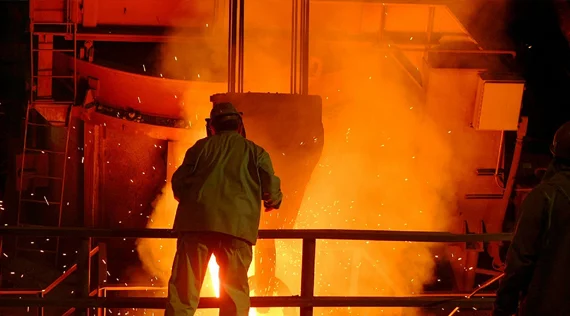Copper Prices Just Fell to a Dangerous Level. What That Means for the Economy.
Copper | 2021-08-19 12:06:36
The price of copper has fallen to a worrisome level. That’s a negative indicator for the economic recovery.Â
The price of copper has fallen to a worrisome level. That’s a negative indicator for the economic recovery.
Copper has fallen 16% from its 2021 high hit in May. On Thursday, the price fell to $4 per unit, after having fallen below the key level of $4.20 Wednesday. During copper’s selloff—following an impressive gain for the year—it has touched a level near $4.20 twice before promptly rising from there. The metal has found “key technical support at $4.20,” writes Tom Essaye, founder of Sevens Report Research.
But the dip below the key level means investors are now getting particularly nervous about the economic recovery. Essaye noted earlier this month that if copper falls below $4.20, that would raise concerns about the sustainability of economic growth. And a fall below its current level would add more concern, as the price had risen from $4 several times this year through April.
Companies buy more copper when they need to build more machinery or materials to manufacture more products, making reduced demand for the metal a negative indicator for economic growth.
Investors have indeed been worried that economic growth will slow. A net 27% of fund managers surveyed by Bank of America said they expect a stronger economy in the next year, according to the bank. That’s down from 47% just a month ago.
The angst has come alongside an increasingly worrisome picture for economic growth. Not only will easy year-over-year comparisons end, as the economy had begun to improve around this time last year, but new developments are putting even more pressure on global growth. The spread of the Covid-19 Delta variant is prompting factories and ports—especially in China—to shut down, cutting off companies’ access to the supplies needed to meet demand. As output in China has weakened, so has the price of metals, writes David Lubin, head of emerging markets economics at Citigroup.
Of course, the supply-chain constraints could ease fairly soon, which would unlock better economic growth. Stocks of finished goods—a measure of how much inventory companies have on hand—have ticked slightly higher in the past few weeks after a downtrend, according to Citi data. “Alleviating supply pressures—of which there is now some encouraging but limited evidence—will be the path to ensuring stronger economic activity,” Lubin writes.
 By
By 